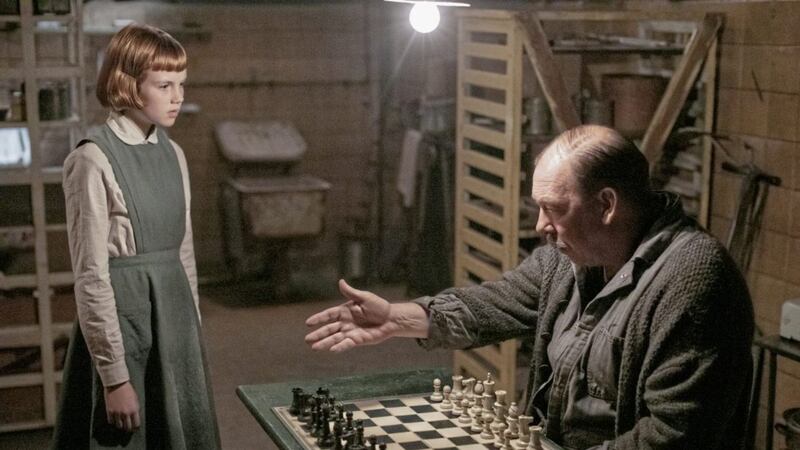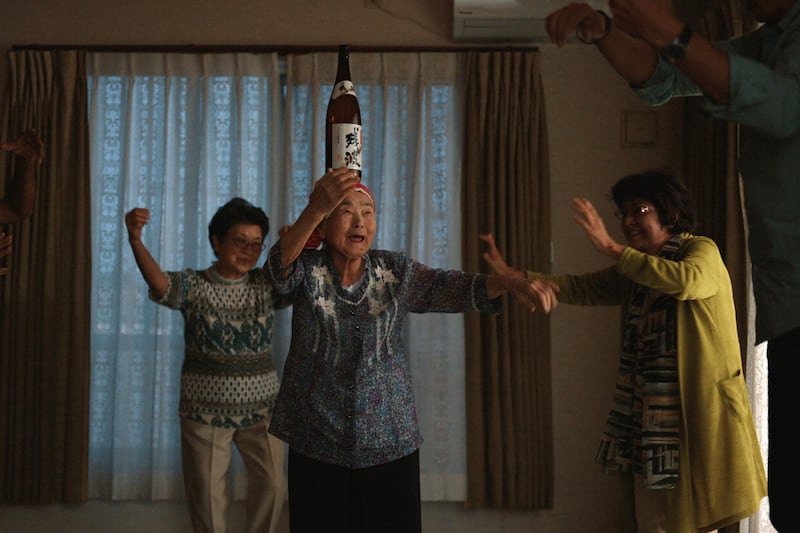The Queen’s Gambit, Netflix
While Emily in Paris, a quasi-sequel to Sex in the City, garnered all the attention only to be pilloried, the best release on Netflix in recent weeks appears to have passed relatively unnoticed.
The Queen’s Gambit is an unsentimental story of a nine-year-old orphan’s triumph against the odds. I can’t image many writers and producers managing that feat alone.
Nevertheless, within the first hour it brought the most tender and joyous scene as Elizabeth Harmon is praised for perhaps the first time in her life.
Beth, as she is known, is left without parents after her unstable and addicted mother is involved in a car smash.
There is no sign of a father, although we learn later that he tried to help his daughter but that her mother wouldn’t allow him in their life.
Refreshingly unusual themes there, as is the very first scene.
Beautifully lit, it opens with an adult Beth asleep in the bath of her hotel room in Paris in 1967 until she is woken by banging at the door
She is due at an event and is terribly late. She dresses in an instant and rushes down stairs, trying to remain dignified and marches into the auditorium only to be met by a mass flash of camera lights.
Viewers assume she’s a movie star or some celebrity, until she walks through the audience to a table, apologies to her opponent for keeping him waiting and sits down to a chess match.
We flashback to the car accident and Beth is sent to a children’s home.
There she is introduced to her new, strict, although friendly and caring, life. She sleeps in a mass dorm and learns quickly that only the youngest children are lucky enough to find new families.
There are two other important discoveries.
The Queen’s Gambit suggests that it was normal in the 1950s for orphanages to give tranquilisers to the children to ‘help their mood’. Beth is left in a daze after taking her first one, but is instructed by more seasoned residents to wait until bedtime to take them.
The second and critical encounter is with Mr Shaibel, the caretaker, who plays chess in the basement.
Socially distant, Beth is intrigued but unable to find a way to join him in the game.
She keeps turning up in the basement though and eventually Mr Shaibel relents and introduces her to chess.
This is the central relationship is the early part of the seven-episode series, with Mr Shaibel at first frustrated when a nine-year-old beats him and then paternal and proud of his prodigy.
Beth’s immersion in chess is also facilitated by her growing addiction to the tranquilisers. She saves up her pills for a few days and then takes a collection at night, learning classic chess sequences (including the Queen’s Gambit) through a hallucination on the ceiling of the dorm.
Mr Shaibel introduces Beth to a local high school teacher and chess fan and gets the permission of the orphanage’s head for her to play, and destroy, the all-male chess team at one sitting.
A little surprisingly, Beth is adopted at age 13 by another troubled mother who lost her first child and her cold and distant husband.
A pact develops when Mrs Wheatley discovers there’s serious money to be won when you’re a chess genius and Beth discovers that her new mum is addicted to her favourite tranquiliser.
Mr Shaibel continues to help her from afar, paying her first competition entrance fee before Beth had converted Mrs Wheatley.
After her first competitive match, she had asked Mr Shaibel if she did OK.
“You were astounding,” he told her.
As a viewer I wanted to punch the air.









